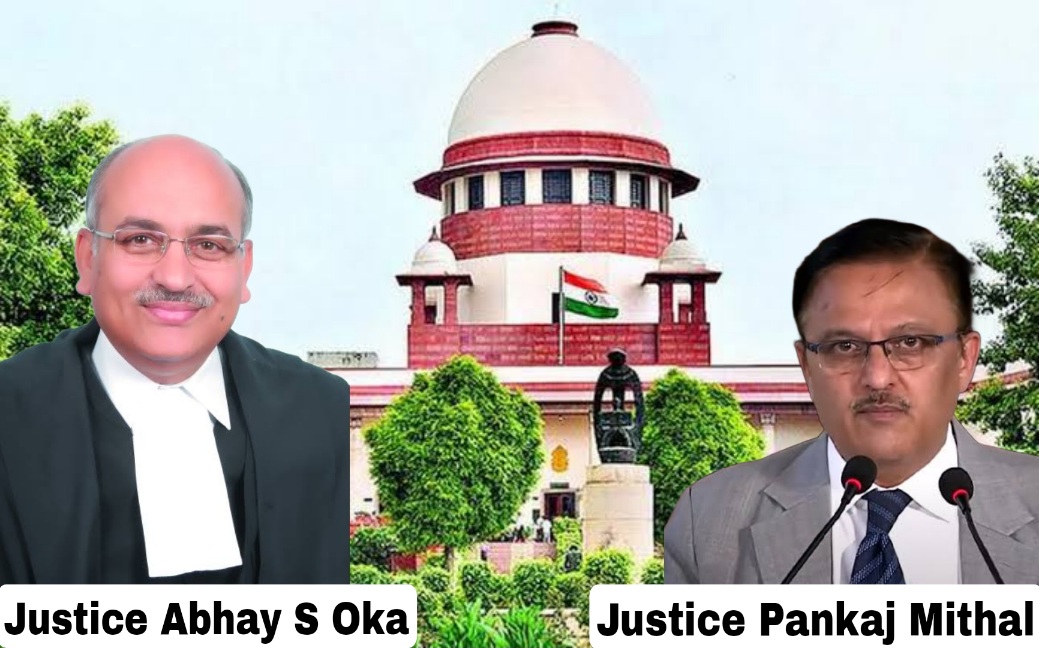Supreme Court stated : In a perpetual injunction for a title claim where defendant claims title by adverse possession, plaintiff is not required to seek an ownership declaration.
- Supreme Court stated : In a perpetual injunction for a title claim where defendant claims title by adverse possession, plaintiff is not required to seek an ownership declaration.
In a recent ruling, the Supreme Court provided important clarification on legal proceedings related to perpetual injunction claims based on title when the defendant raises a plea of adverse possession as a defense. The court's decision emphasized that in such cases, there is no need for the plaintiff to seek a formal declaration of ownership.
The court partly allowed an appeal that challenged the judgment of a High Court, which had set aside a decree issued by the First Appellate Court. The First Appellate Court had earlier overturned the dismissal decree of the Trial Court, which pertained to a suit for the declaration of ownership.
The bench, comprising Justice Abhay S. Oka and Justice Pankaj Mithal, observed that in a straightforward suit for perpetual injunction based on title, when the defendant asserts that their title has been perfected through adverse possession against the plaintiff or the plaintiff's predecessor, it cannot be construed as a dispute about the plaintiff's title. In such cases, the central issues revolve around whether the plaintiff can establish their possession at the time of instituting the suit and whether the defendant can demonstrate the perfection of their title through adverse possession. Consequently, the court determined that it is unnecessary for the plaintiff to request a declaration of ownership in this context, as there is no cloud cast upon their title.
The significance of this ruling lies in its recognition of the efficiency and fairness of the legal process. It acknowledges that a perpetual injunction serves as a robust remedy, effectively preventing the defendant from claiming any rights to the property. By doing so, the court can affirm the plaintiff's ownership rights without the requirement of a separate declaration of ownership, simplifying the legal proceedings and reducing the burden on the plaintiff. This ruling aligns with the principles of equity, promoting clarity and expediency in property disputes while preserving the rights of both parties. It represents a positive development that can lead to more efficient and cost-effective resolution of property-related legal disputes, benefitting the judicial system and property owners.
The legal case involving an Appellant and a Respondent, represented by Advocate Rohan Dewan and Advocate Shakun Sharma, respectively, centers around a suit for perpetual injunction concerning an immovable property. The Appellant claimed exclusive possession of the property following a settlement with his brother, while the Respondent argued that their family had possessed the property since 1978. The Appellant sought to amend the complaint to include a declaration of ownership and possession, which the Trial Court granted. However, the Respondent countered with a claim that the amendment wouldn't strengthen the Appellant's case. Ultimately, the Trial Court dismissed the Appellant's suit and granted the Respondent's counterclaim. Subsequently, the District Court intervened and decreed in favor of the Appellant, overturning the Trial Court's decision. Dissatisfied with this, the Respondent appealed to the High Court, which ruled that the amendment requesting a declaration was time-barred and unrelated to the original suit's filing date.
In response to the High Court's decision, the Appellant filed a Civil Appeal, challenging the ruling that had set aside the First Appellate Court's decree. The Appellant argued that the Respondent had no legitimate title or right to interfere with his possession of the property. The central issue the Court had to address was whether the Appellant was required to claim a declaration of title in the first place. In its deliberations, the Court referred to the case of Anathula Sudhakar v P. Buchi Reddy, observing that there was no dispute concerning the property's title. The Court ruled that in a suit for perpetual injunction based on title, when the defendant pleads the perfection of their title through adverse possession, there is no dispute about the plaintiff's title. As a result, the Court determined that the Appellant was not obligated to seek a declaration of ownership, rendering the suit, as originally filed, legally maintainable.
Moreover, the Court took note of the two substantial questions of law framed by the High Court. It concurred with the High Court's decision that the amendment in the complaint was indeed barred by limitation, considering the cause of action date and the date of application for the amendment. However, the second issue framed by the High Court was not deemed a substantial question of law. Consequently, the Court remanded the case to the regular second appeal to the High Court, directing the framing of additional substantial questions of law under Section 100 of the Civil Procedure Code, 1908, subsection 5. As a result, the Court partially allowed the Appeal, set aside the contested judgment, and reinstated the Second Appeal, ensuring that the case would receive further consideration in light of the clarified legal principles. This ruling clarifies the applicability of declarations of title in cases involving perpetual injunctions based on title and adverse possession claims, providing an important precedent for similar disputes in the future.

